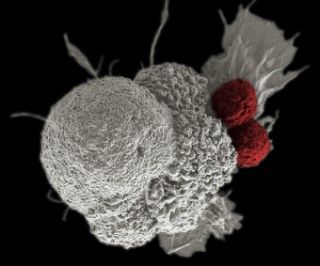Course Description
Immune cells protect our bodies from both self-derived threats and exogenous pathogens, while keeping peace with normal cells and non-harmful commensal microbiota. They have various mechanisms to perform these tasks, a capacity that is essential for maintaining homeostasis. However, these same mechanisms can backfire, …
Immune cells protect our bodies from both self-derived threats and exogenous pathogens, while keeping peace with normal cells and non-harmful commensal microbiota. They have various mechanisms to perform these tasks, a capacity that is essential for maintaining homeostasis. However, these same mechanisms can backfire, resulting in severe disorders such as immunodeficiency, chronic inflammation, allergy, degenerative diseases, and cancer. This course discusses the connections between normal physiology and disease by examining the developmental relationship between innate and adaptive immune cells as well as the functions and malfunctions of immune cells. The course familiarizes students with both basic biological principles (such as cell death and immune cell signaling) and clinical applications (such as immune checkpoint blockade). More generally, students learn to identify relevant primary research literature, critically evaluate experimental data, and reach their own conclusions based on primary data.
This course is one of many Advanced Undergraduate Seminars offered by the Biology Department at MIT. These seminars are tailored for students with an interest in using primary research literature to discuss and learn about current biological research in a highly interactive setting. Many instructors of the Advanced Undergraduate Seminars are postdoctoral scientists with a strong interest in teaching.
Course Info
Instructor
Departments
Learning Resource Types
assignment
Presentation Assignments
assignment
Written Assignments

Two cytotoxic T cells (red) attack an oral cancer cell (white). Image by NIH Image Gallery on flickr. License BY-NC.








